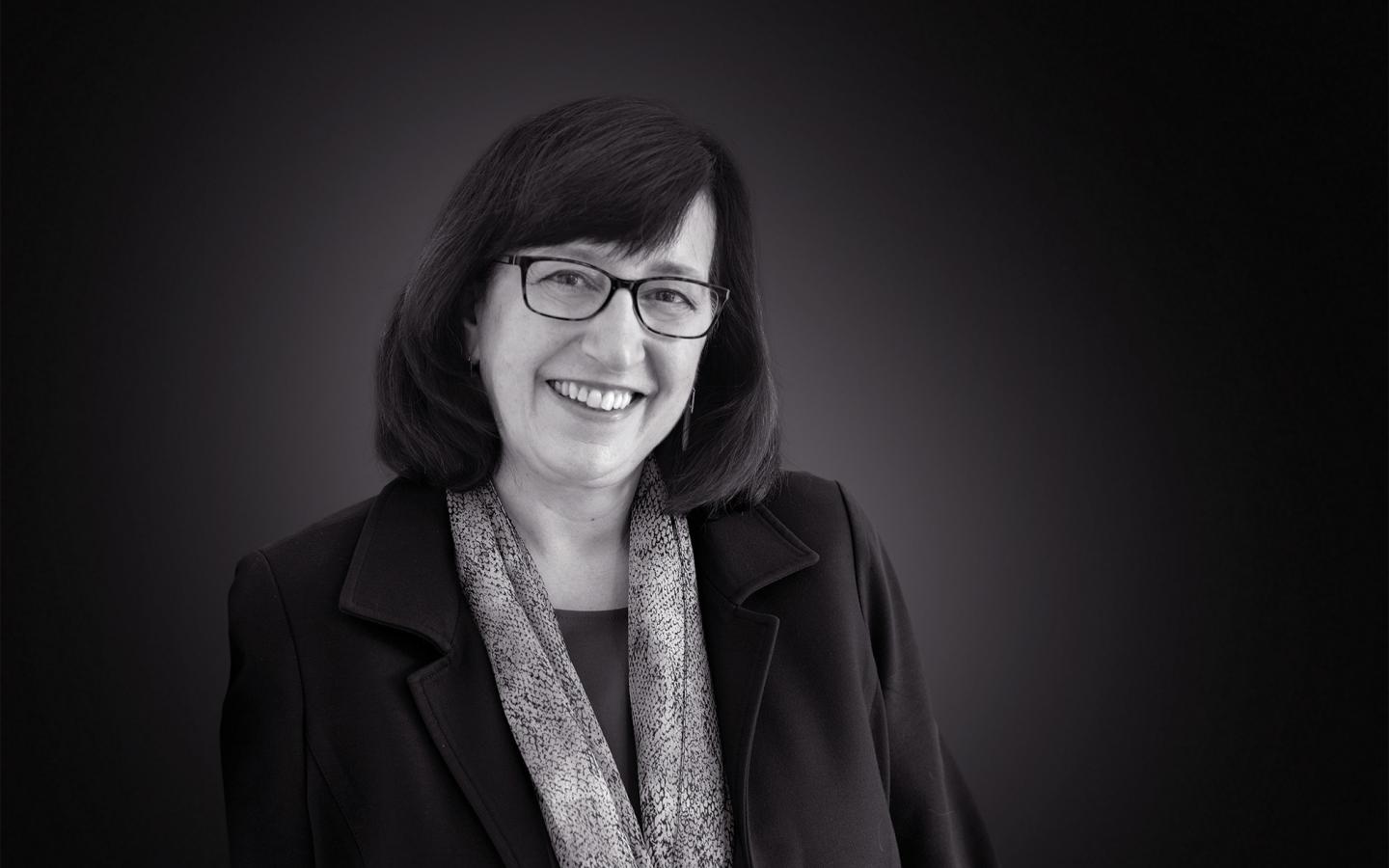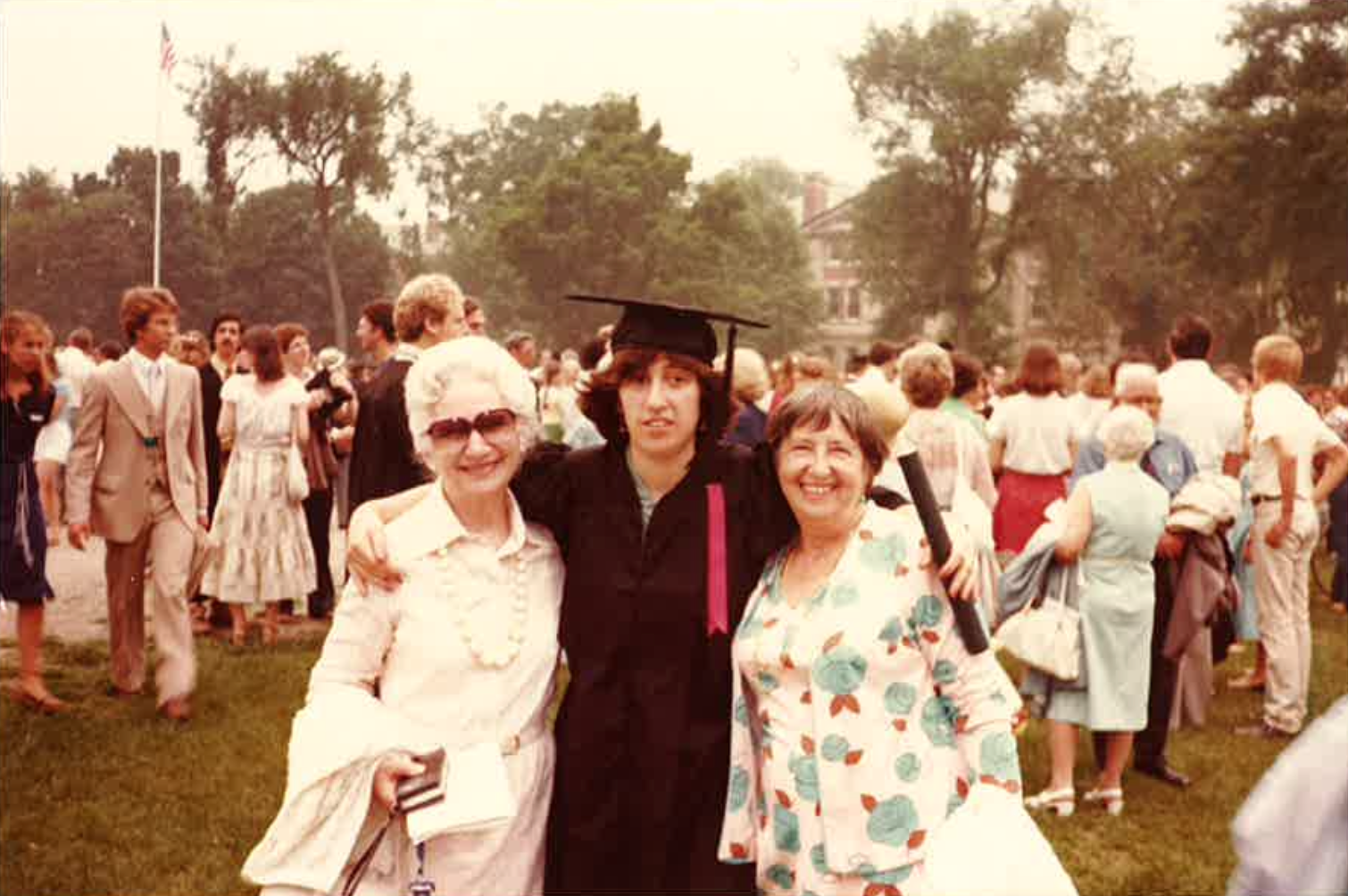“Don’t be constrained by boundaries. You can color outside the lines.”
Intellectual curiosity, caring for others, and high ethical standards are at the core of how Martha Pollack leads.

Martha Pollack ’79, a nationally recognized expert in artificial intelligence and natural-language processing, has been president of Cornell since 2017. Previously, she served as a dean, vice provost, and provost (succeeding Philip J. Hanlon ’77) at the University of Michigan and as a professor at the University of Pittsburgh. She graduated Phi Beta Kappa and is a fellow of the American Academy of Arts and Sciences, the American Association for the Advancement of Science, the Association for Computing Machinery, and the Association for the Advancement of Artificial Intelligence.
There is a tendency for people to say that what really matters in college is what happens outside the classroom. While that may be true, we should never minimize the importance of the formal education you get at a world-class college like Dartmouth. Dartmouth is where I learned to think, to ask questions, and to communicate. I don’t remember all the details of everything I learned in my classes, but I still make use of the core lessons in my anthropology classes, which is to recognize that people have different experiences and can see the world very differently. In my math courses I learned how to think logically and analytically and to develop sound conclusions—lessons I use daily. I certainly write, edit, and re-edit carefully, practices I developed in so many of my classes.
Then there’s what I did beyond my classes. I was a nerd. I spent a lot of time in Kiewit Computation Center, often working on the help desk. When it was slow, we used to play this game called Adventure. It was all text. Computers were new, and it was really fun to be a part of that. And I learned to ski as a freshman. I would take the bus up to the Skiway between classes. I never got very good, but I enjoyed it.

The Path to President
My path to higher ed administration was the same as it is for many people. I was successful as a professor, teaching and doing research. Then it was my turn to be a department chair, and I realized that I liked it. I could make things happen and I could foster the careers of my peers, students, even staff. It just snowballed from there.
Years ago, I was looking for an associate dean when I was a dean at Michigan. I remember speaking with a candidate’s reference who said, “Oh, he’ll be great because he has the two things you need for effective leadership. He’s intellectually curious and he cares about people around him.” And I would add one more important characteristic: the highest ethical standards. Those three attributes are really the things I try to pay attention to.
In addition, it’s important to have an appropriate degree of humility—no one can know everything—and you have to surround yourself with a strong team that you can trust. At Cornell, we got through the pandemic remarkably successfully, and we received lots of kudos for it. My amazing team made that possible. We were the only Ivy that completely reopened for all students in 2020. A lot of people saw that as a risky decision, but we followed the science and the research.
Places like Dartmouth and Cornell have always sought to do more than prepare students for their careers. Whether or not we called it leadership, a core part of our mission has always been preparing students to lead fulfilling lives, to participate effectively in this democracy. That’s more important than ever now. That doesn’t mean they all need to be CEOs or presidents. It means that they need to act in ways that result in change.
The Big Green Impact
There’s a story about Dartmouth that I’ve told a gazillion times because it’s so relevant to how Dartmouth changed my life. I arrived in Hanover planning to major in either math or one of the physical sciences. Then I took one of my distribution requirements, in anthropology, and I loved it. I went to Professor Hoyt Alverson and said, “I think I want to do a dual major in math and anthropology,” which is kind of a ridiculous combination of fields.
Professor Alverson didn’t laugh at me. He didn’t just sign my form and send me away. He listened to me, and we talked for a while. He said, “I think I get it. You tend to think very formally, like a mathematician, but you’re interested in people.” I said, “Yes, that’s it.”
And he said, “So, you should think about studying linguistics, because it’s a formal discipline, but what’s more human than language? There’s just one problem. We don’t have a linguistics department at Dartmouth. But don’t worry, I'll help you do a self-designed major.”
And he did. In 20 minutes, he introduced me to interdisciplinary studies and helped me find what became my field of study. Most important, he taught me this fundamental lesson: Don’t be constrained by boundaries—you can color outside the lines. It completely changed my life.
Years later, Professor Alverson invited me to his retirement party to represent the students of the 1970s, and he also came to my inauguration as president of Cornell, 38 years after I graduated from Dartmouth. The interactions I had with him, with my other professors, and with my fellow students at Dartmouth all led to where I am today.